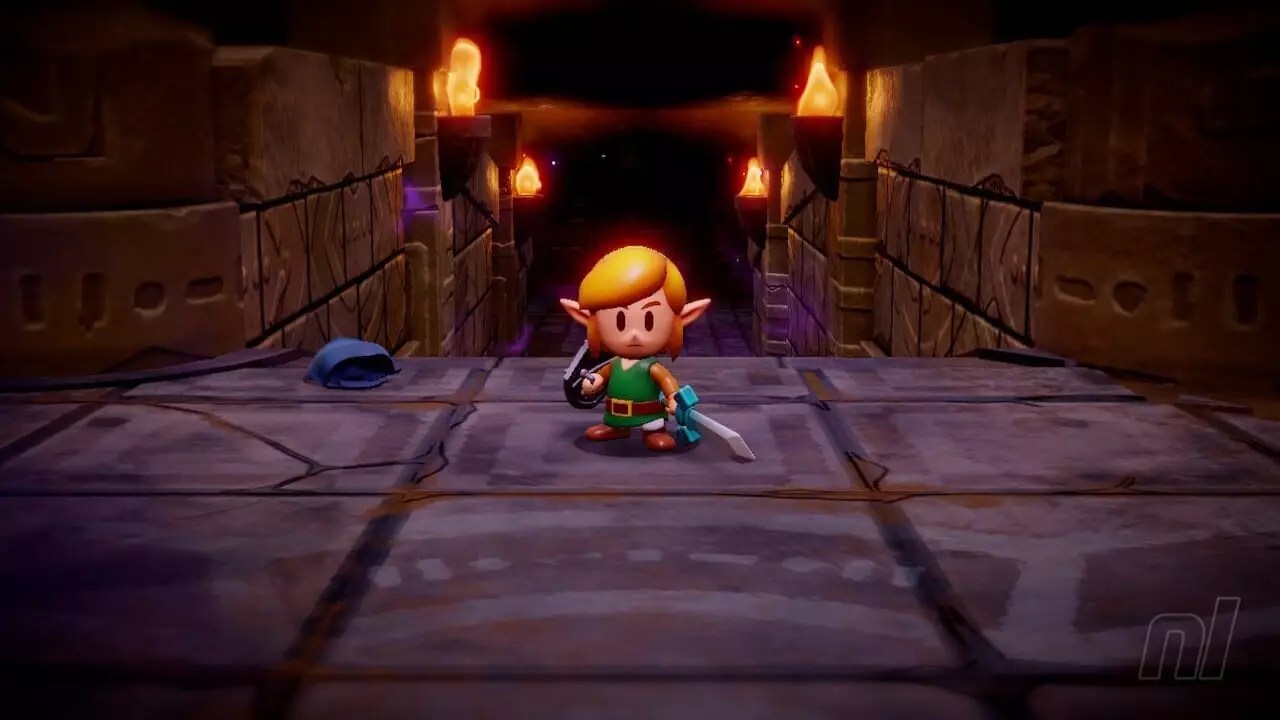The Legend of Zelda series has long captivated audiences with its intricate storylines, memorable characters, and innovative gameplay. With the latest installment, *Echoes of Wisdom*, the narrative takes a unique turn that breathes new life into the character dynamics that players have come to cherish. One of the most intriguing aspects of this game is the exploration of Link’s muteness, an element that seems both unusual and thought-provoking.
In *Echoes of Wisdom*, players are greeted with the unprecedented opportunity to control Princess Zelda as the main playable character. This shift signifies a bold progression in storytelling, allowing for a richer exploration of Zelda’s role within the game’s universe. Yet, this innovation also casts a spotlight on Link, whose absence of dialogue raises a host of questions. For a franchise that has emphasized character development, the decision to keep Link voiceless during gameplay seems to serve a dual purpose: not only does it maintain his silent protagonist status, but it also enriches the narrative by compelling players to ponder the consequences of his character’s circumstances.
For the first time in the series, we are offered an explanation for Link’s inability to communicate verbally in *Echoes of Wisdom*. The reveal comes indirectly through Lueberry’s diary, where players learn that Link has lost his voice as a result of being trapped in the rifts that plague Hyrule. This narrative choice cleverly intertwines gameplay mechanics with the storyline, crafting a cohesive experience that resonates with players on a deeper level. The notion that Link’s muteness is a direct consequence of his adventures enhances the emotional weight of the character’s journey, making each encounter feel more poignant.
Though Link traditionally only utters brief sounds—grunts and gasps—his new backstory adds layers to what it means to be a hero in *Echoes of Wisdom*. While other characters within the game are given vocal expressions and dialogue options, Link’s silence can be perceived as a reflection of his internal struggles and sacrifices. This decision encourages players to consider how loss can manifest in different forms, propelling Link into a narrative that is not just about conquering foes, but also about confronting and overcoming personal challenges.
Link’s mutism serves as a critical connecting point with other characters throughout the game. As he interacts with NPCs—who have also faced the rifts and lost something significant—players witness the variety of ways in which this trauma impacts their lives. By rendering Link mute, the developers create a parallel narrative thread that unifies these experiences. Each character’s ailment becomes a microcosm of the broader conflict within the game, emphasizing shared struggles in a world turned upside down by chaos.
Moreover, players are invited to engage emotionally with the game’s universe in a way that extends beyond mere gameplay mechanics. The absence of verbal communication transforms the interactions into scenarios filled with empathy, allowing players to project their interpretations and feelings onto Link. This absence may limit literal communication, but it creates space for profound implications regarding the nature of heroism and vulnerability.
While some may argue that the explanation for Link’s muteness is simplistic, it is precisely within that simplicity where its charm lies. In an era where video games are often laden with convoluted plots and excessive exposition, *Echoes of Wisdom* cuts through the clutter. By focusing on a fundamental aspect of Link’s identity and grounding it in a relatable human experience, it captures the essence of what makes stories resonate: authenticity and emotional depth.
*The Legend of Zelda: Echoes of Wisdom* marks a significant evolution in character development within the franchise. By providing a coherent rationale for Link’s muteness, the game fosters an exploration of loss, connection, and resilience that speaks to both longtime fans and new players alike. The absence of dialogue may initially seem unconventional for a beloved hero, yet this strategic choice enriches the narrative, inviting players to immerse themselves in a thought-provoking adventure that extends beyond mere combat and questing. As we navigate through Hyrule together, one cannot help but ponder: what does it truly mean to be a hero, and what sacrifices must we endure to protect that which we hold dear?


Leave a Reply